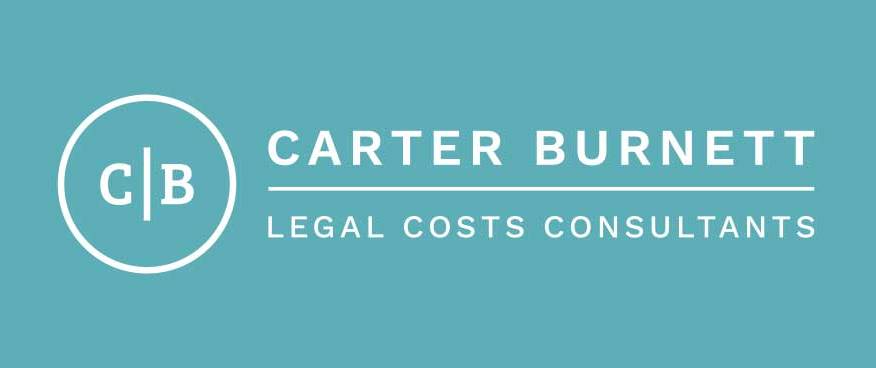Guideline Rates Not Always Relevant
Posted on 5th April 2023 at 16:56
By Sean Linley, Costs Drafstman
An interesting decision arose in the High Court case of Harlow District Council v Powerrapid Limited (Rev1) [2023] EWHC 586 (KB) (17 March 2023) and whether a Costs Judge was right to dispense with Guideline Hourly Rates when determining the hourly rates to award.
The case related to a challenge made against a Compulsory Purchase Order, the Claimant was ultimately successful and awarded its costs.
The Defendant appealed the assessment of costs in relation to hourly rates citing the non-application by the Costs Judge of the Guideline Hourly Rates. The Defendant's position was that the Costs Judge should have taken these into account when determining what hourly rates to allow.
Mr Justice Choudhury stated that:
"Parliament has entrusted costs judges with the specialist, and often difficult, task of assessing what costs and hourly rates are appropriate. In my view, it would be to usurp the role of the costs judge if the appellate court were to consider that it was in an equivalent position to the costs judge and/or had some greater right to interfere with a judgment merely because the judge below (like the appellate court) had not heard the substantive matter."
He further stated that "The Master of the Rolls' emphasis on the Guide being "no more than a guide and a starting point for judges carrying out summary assessment" is important to bear in mind.".
Mr Justice Choudhury provided that Guide was not as central to Detailed Assessment as it is on Summary Assessment. He referenced the fact that the Guide itself specifically stated only that "may also be a helpful starting point on detailed assessment". He continued that "whether or not they [Guideline Hourly Rates] are in fact considered to be such will be a matter for the costs judge having regard to all the circumstances of the case."
The Defendant contended that the Costs Judge was wrong to depart from London 2 rates and should not have permitted hourly rates that ranged from 8% to 41% higher than those rates.
Notably, in the original assessment the Costs Judge stated that:
"I start by saying that I appreciate that the 2021 guideline hourly rates have been applied for a very short period, but they are just guideline rates, based upon the best evidence available. I would be unable to accept that insofar as one does treat them as a starting point (and I will come to that) that it would be inappropriate to uplift them in an appropriate case simply because they are new."
The Costs Judge ultimately held that in their view the GHRs were not a starting point in the case given that "it is a very specific sort of work. It is quite difficult and specialised. It gives rise to very specific issues. It requires very specific skills for which parties can expect to pay, I think, quite substantial fees. In its nature, it is work that one might well see undertaken, as in fact we do see in this case, by firms based in the City of London."
The High Court dismissed the Defendant's appeal finding that "it was open to the Judge to conclude, as he did, that the GHR were not particularly useful in this case." and that "in any application of the Guide and GHR there will be a degree of judgment involved." Notably "the Judge's conclusion as to the appropriate hourly rate was not based solely on his view of complexity (which is but one of the seven pillars) but also on the value of the dispute, the importance of it to the parties and the specific skills required to undertake the work. Those are all matters that ought to be and were taken into account by the Judge."
The High Court summarised at paragraph 90 that "as Mr Carpenter KC submits in his skeleton argument, "[T]hat Costs Judges can bring such knowledge to bear is precisely why appellate courts afford their decisions on matters peculiarly within their expertise significant weight"."
What does this mean for assessment?
In short that Costs Judge at Detailed Assessment are entitled to dispense with Guideline Hourly Rates. It is down to parties to set out why a case, with reference to the relevant CPR pillars, should be allowed hourly rates which exceed Guideline Hourly Rates and why the Court should not even factor them in. This should dilute routine arguments from paying parties that Guideline Hourly Rates are the automatic starting point.
Notably the Costs Judge saw nothing wrong with uplifting the Guideline Hourly Rates despite their recent review in 2021.
Another interesting point arose concerning whether it was appropriate reassess rates for different stages of litigation. The High Court stated that the general position is that rates are assessed for a firm. Moreover, they stated a litigant should not need to change firms and use a different (cheaper) firm for a smaller and simpler aspect of a case. It was held it was unrealistic for the Defendant to expect the Costs Judge to unertake a separate 'seven pillars of wisdom analysis'.
In the case rates reaching up to 41% higher than the appropriate Guideline Hourly Rates were allowed. This is not an insignificant sum and should given receiving parties confidence in appropriate cases that the Court will be pragmatic around the issue of rates where appropriate.
Unsure what is an appropriate hourly rate for your cases? Do you just want a chat about the assessment of hourly rates? Should you have any queries arising from this article or upon costs generally then please do not hesitate to get in touch with our friendly team either via phone 01482 534567 or e-mail info@carterburnett.co.uk
Key Links
Share this post:

